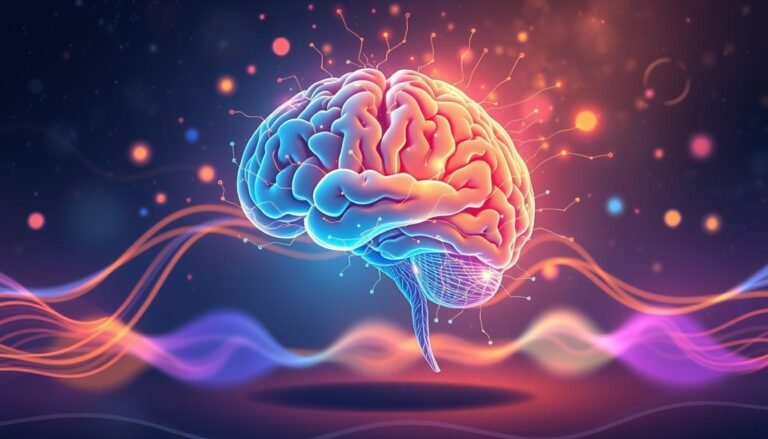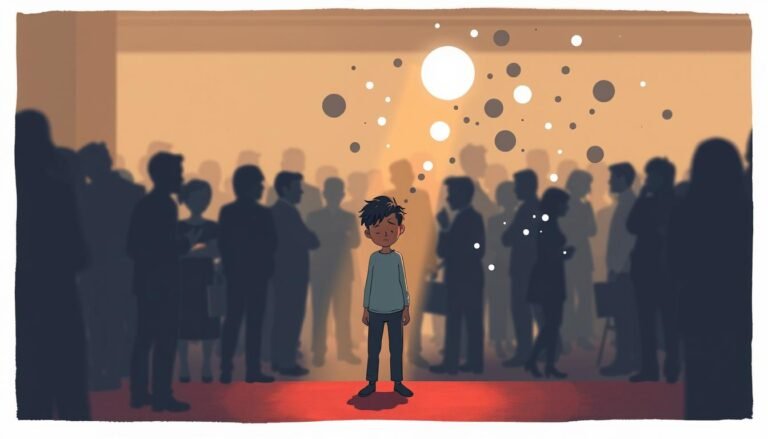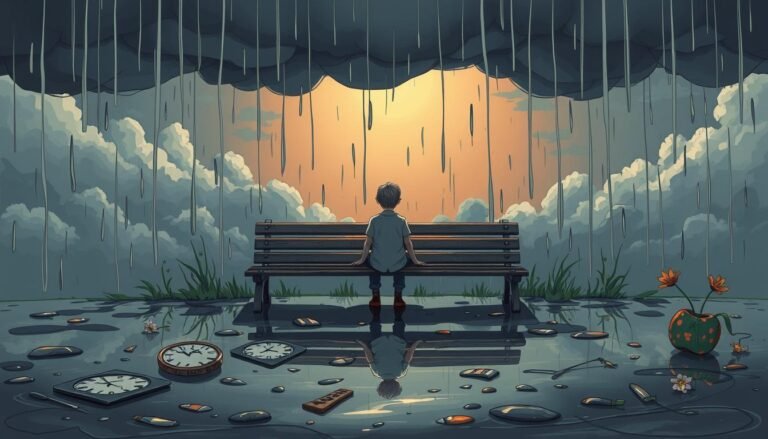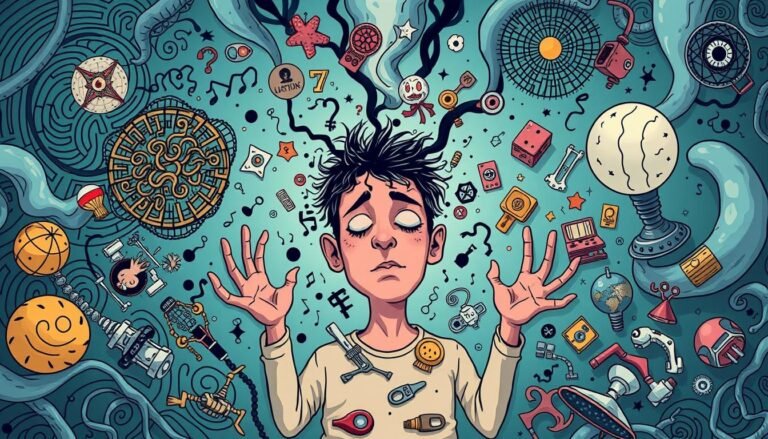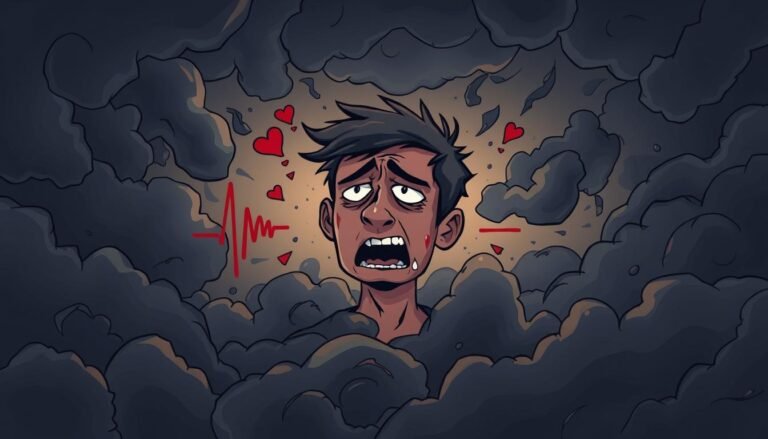Navigating Mental Health Challenges for Young People in Ireland
When Mary, twelve years old, told her father she was very sad, he thought it was a normal phase. He did not realize the depth of her feelings. This is a common reaction in Ireland. For a long time, people have kept their mental health issues private. They often face a lot of shame for talking about them. But, things are changing in 2024. More and more people are beginning to talk openly about mental health.
In Ireland, young people often feel they cannot talk about their mental struggles. They are made to think it’s a sign of weakness or failure. Things like their race, class, and gender also play a role in how they face these challenges. Yet, there is hope. Through mental health campaigns, workshops, and community support, awareness is growing. Slowly, Ireland is becoming a place where it’s okay to not be okay.
Finding the right help for families can be tough. Luckily, there are websites like spunout.ie and yourmentalhealth.ie that offer great help. Helplines such as 50808, Childline, and Samaritans are there for immediate support. The Department of Children also keeps a list of services to help families find what they need. Knowing how to access these resources is key to managing mental health challenges in the young.
Key Takeaways
- Historically, mental health issues in Ireland were hidden and stigmatized.
- 2024 signifies a shift towards better acceptance and understanding of mental health issues.
- Stigmas around mental health as a sign of failure prevent many from seeking help.
- Intersectional factors like race, class, and gender significantly influence mental health experiences.
- Resources like spunout.ie, yourmentalhealth.ie, and helplines are crucial for support.
- More mental health professionals are needed in schools to tackle youth mental health issues effectively.
- A comprehensive directory from the Department of Children helps families navigate available services.
Helping Ireland’s young people with mental health issues involves understanding and patience. With more awareness and direct actions, we can create a supportive space where the young can flourish.
Introduction to Youth Mental Health Challenges in Ireland
In Ireland, young people’s mental health is a big worry. This was true before and even more so during COVID-19. Those between 10 and 24 face issues that lead to 45% of lost years due to disability. This shows how much help is needed for mental health services for kids and teens in Ireland.
Overview of Mental Health Issues Among Young People
Young people’s mental health in Ireland is in a bad place. About 21% of people aged 17-25 have self-harmed. More than half have thought about suicide, and 7% have tried to take their lives. The number of teens with mental health diagnoses is around 15.6%.
The Clonmel Project also found that 21% of 12 to 18-year-olds had mental disorders. Another 7.7% of those aged 11-13 were in a risky mental state. Such high numbers demand better mental health services for Ireland’s youth.
Sadly, suicide is the top reason young people die from 15 to 24. Among those 20 to 24, men have a high suicide rate of 30.7 per 100,000. The rate of self-harm reaches 639 per 100,000 for young women and 626 for young men 20-24. These figures stress the urgent need for more teen therapy services.
Impact of COVID-19 on Youth Mental Health
COVID-19 has made young people’s mental health issues worse. Jigsaw’s service saw a decrease in referrals at the start of the pandemic. Anxiety and sleep problems shot up, especially for those aged 12-16.
Overall, mental health has gotten worse after the pandemic, especially for young adults and women. This sheds light on the growing gap in care and attention for mental health. It’s clear we need to boost teen therapy and other support services for young people in Ireland.
The Role of Schools in Supporting Mental Health
Schools are key in helping students feel safe and supported, especially in tough times like during the COVID-19 pandemic. They offer student well-being resources and create an environment to protect young people’s mental health. This support has become crucial given the rise in youth mental health issues.
School Mental Health Promotion Programs
Programs aimed at boosting student emotional well-being have had good success. For example, Jigsaw and services with primary care psychology offer free mental health help. A study in the UK showed schools can influence 1% to 6% of students’ mental health, based on the school’s atmosphere. This highlights the role of the school in maintaining students’ mental wellness.
School-based Suicide Prevention
Over the past ten years, the number of young people dying by suicide has sadly increased. That’s why suicide prevention measures have become critical within schools. Research indicates that school mental health promotion efforts not only make students feel better but also help with severe problems, like thoughts of suicide. In Ireland, the suicide rate jumped by 12% in 2009, showing the urgent need for effective action.
Importance of Youth Involvement in Mental Health Programs
It’s very important to include young people in shaping mental health programs. Tools like Photovoice, which lets students share their stories through photography, can make a big difference. Yet, young people’s voices are sometimes not heard enough. Efforts like those of the MYSTORY study show that involving youth is vital for successful well-being programs in schools.
Available Mental Health Services for Young People
Ireland has a range of mental health services to help young people. They can get support from primary care, specialized services, or non-profits. This gives them many options to find help.
Primary Care Services
Led by general practitioners (GPs), primary care services are for children and young adults. HSE Primary Care Psychology provides free mental health services for those under 18. You can find these at local centers across the country.
Specialist Mental Health Services
CAMHS helps with serious mental health issues for those under 18. They focus on problems like ADHD, depression, and anxiety. These services, run by psychiatrists, see patients based on how urgent their needs are. If needed, young people can also directly see private therapists without a GP’s referral.
Non-profit Organizations
Non-profits are very important in mental health support. Jigsaw gives one-to-one support for 12 to 25-year-olds for free. Meanwhile, Childline is open 24/7 to listen to those under 18. Other groups like Bodywhys and Pieta House also help. BeLonG To supports the LGBTI+ community, and spunout offers online information and texting volunteers.
With all these services, youth mental health support in Ireland is strong. Young people have many ways to get the care they need.
The Importance of Early Intervention
Starting mental health help early is key for the youth. Catching problems early lessens their big effects later on. A 2013 study by McGorry et al. says we should act fast and better to help young people’s chances.
Identifying Early Signs of Mental Health Issues
Seeing the signs first is important in dealing with mental health issues in kids. Kessler et al. in 2005 found that spotting issues early can make a big difference. This could mean noticing odd behavior, frequent mood changes, staying away from friends, or grades dropping. Schools and parents need to watch for these signs and talk about getting help from mental wellness programs in Ireland.
Steps to Take for Early Intervention
When we spot the early signs, acting quickly is crucial. Working with places like Jigsaw in Ireland can give the right help. Parents or doctors can set up meetings for early help. MYSTORY study points out how important it is to listen to what young people need for support.
Also, helping early, from birth to age 25, can do wonders. It not only helps now but also lessens the chance of troubles later. Catania et al. in 2011 showed that early steps make things better for young folks. Burcusa and Iacono in 2007 say it even means less stress about depression later.
To wrap up, using and mixing mental wellness programs in Ireland with early mental health steps is very important. Acting sooner helps young people feel better in their minds and in life.
Role of Family and Community Support
Family and community support play a key role in youth mental health. Nearly a quarter of families have a parent with mental illness. This increases the chance of kids facing mental health issues. In Ireland, one in five adults deals with mental health problems, ranking it third out of 36 European nations. This highlights the urgent need for strong family mental health support.
Programs like Family Talk show how effective family support can be. They help parents and kids better understand mental illness and improve family life. These sessions last 60-90 minutes and offer mental support resources. Family Talk has succeeded in several countries, proving its value with real results.
The “PRIMERA” program in Ireland focuses on helping families. Its aim is to cut the risk of kids developing mental disorders and reduce child protection needs. By using community resources like Family Resource Centers, and the help of charities, Ireland enhances family mental health support. This has a wide impact on the well-being of families.
Irish families contribute a lot through their unpaid work, saving the state a whopping €4 billion each year. The government supports these families with the Carers Strategy and the Family Recovery Guidance Document. These guides stress the importance of training and support for families. They help families offer better care, making a significant difference.
Irish law also supports carers with mechanisms like “The Carers Leave Act.” This provides financial help to those who must stop working to care for family. By strengthening family mental health support Ireland and community resources, we help families cope. This support is crucial to deal with mental health challenges within families.
Understanding and Accessing CAMHS
In Ireland, the Child and Adolescent Mental Health Services (CAMHS) help young people under 18 deal with mental health issues. They offer urgent help to those in serious need. CAMHS decides help based on the emergency and danger involved.
What is CAMHS?
CAMHS are special mental health services for kids and teens. They treat a range of issues like ADHD, anxiety, and depression. The aim is to help young people with their mental health, making sure they get the right care.
How to Access CAMHS Services
To start with CAMHS, you need a referral from your GP or another doctor. The level of care you get depends on how urgent your situation is. Those in serious trouble get help right away.
Types of Treatments Offered by CAMHS
CAMHS provides many treatments for young people’s mental health. Here are some:
- Psychotherapy: like CBT and family therapy.
- Medication Management: for conditions such as ADHD and severe mood disorders.
- Group Therapy: to connect with others facing similar challenges.
- Crisis Intervention: help during severe mental health crises.
- Specialized Programs: for specific problems like eating disorders or self-harm.
There’s a wide choice of help at CAMHS, all designed for young people. They focus on early care and support. This way, they hope to make a lasting positive change in the mental health of children and teenagers.
Private Mental Health Care Options
Private mental health care can be a great option for young people. It offers support that’s made just for them. This way, their specific needs can be addressed properly and quickly.
Finding Qualified Therapists
Looking for a therapist means checking their credentials. Make sure they know how to help teenagers. You can find good therapists through online lists or by getting recommendations from doctors.
Cost and Accessibility of Private Care
Private mental health services in Ireland can cost from €0 to €120 a session. But, some therapists adjust their fees based on what you make. This helps make private care more affordable for everyone.
Places like Jigsaw offer free mental health care. Plus, some private therapists let you see them without a doctor’s note. So, there are ways for teenagers to find counseling that fits their budget.
Choosing private mental health care in Ireland means less waiting and care tailored just for you. It can be a good option for families looking for help.
Navigating Mental Health Challenges for Young People in Ireland
Handling mental health challenges among young people in Ireland is complex. Data highlights that about 32% of teenagers in the west of Ireland have self-harmed. This problem is more common among girls and non-binary teens. To help, parents and guardians should learn how to support their children’s mental health.
Practical Tips and Strategies for Parents
Parents are key in helping their children with mental health. They should encourage open talks about feelings. This can help teenagers feel safe talking about their struggles. It’s important to know what can lead to self-harm, like tough family or friend situations.
A stable home and being alert for early signs of trouble are crucial. Also, using resources from the Department of Children can give parents useful advice. This guidance is important for taking action if their child needs help.
Empowering Young People Through Knowledge and Resources
It’s vital to arm teens with tools and information to tackle mental health issues. Teaching them how to deal with stress boosts their confidence and self-esteem. Help lines and online support offer immediate help and inform teens about mental health care.
Talking openly about mental health and seeking support can break the taboo. This makes it easier for young people to ask for help when they need it. Finding the right mix of strategies and resources is key in enhancing teenagers’ mental well-being in Ireland.
By working together to build stronger and more supportive communities, we pave the way for a healthier and more resilient generation.
FAQ
What are some common mental health issues affecting young people in Ireland?
How has the COVID-19 pandemic impacted youth mental health in Ireland?
What role do schools play in supporting student mental health?
What are the primary mental health services available for young people in Ireland?
How can early intervention improve youth mental health outcomes?
What is CAMHS and how do young people access these services?
What kinds of treatments are offered by CAMHS?
How can families and communities support youth mental health?
What options are available for private mental health care in Ireland?
How can parents and guardians help young people navigate mental health challenges effectively?
What are some effective coping strategies for youth mental health in Ireland?
How do community mental health resources contribute to youth well-being?
Source Links
- Navigating Mental Health Stigmas in Ireland in 2024: Toward Understanding and Breaking Barriers
- Significant mental health challenges experienced by Ireland’s young LGBTQI+ population: report
- Study protocol: navigating access to gender care in Ireland—a mixed-method study on the experiences of transgender and non-binary youth
- A year in perspective: The impact of the COVID‐19 pandemic on engagement with Jigsaw youth mental health services
- Mental health in Ireland during the Covid pandemic: Evidence from two longitudinal surveys
- Perspectives of youth in Ireland on school-based mental health and suicide prevention: the MYSTORY study
- Supporting a whole-school approach to mental health promotion and wellbeing in post-primary schools in Ireland (Chapter 11) – School Mental Health
- The Role of Schools in Early Adolescents’ Mental Health: Findings From the MYRIAD Study
- Mental health services for children and young people in Ireland
- Mental health supports and services
- Delivering Youth Mental Health Services | Research | Jigsaw
- Prevention and early intervention in youth mental health: is it time for a multidisciplinary and trans-diagnostic model for care?
- Early intervention in youth mental health: progress and future directions
- Early Intervention and Youth Mental Health: Synergistic Paradigms to Transform Mental Health Outcomes
- Frontiers | The Family Talk Programme in Ireland: A Qualitative Analysis of the Experiences of Families With Parental Mental Illness
- Family Recovery Interventions with Families of Mental Health Service Users: A Systematic Review of the Literature
- The Profile and Characteristics of Young People Accessing Recently Implemented Community Forensic Child and Adolescent Mental Health Services (F:CAMHS) in Northern Ireland – Journal of Child & Adolescent Trauma
- Young people who have fallen through the mental health transition gap: a qualitative study on primary care support
- Challenges during the transition from child and adolescent mental health services to adult mental health services
- How to get mental health treatment in Ireland
- What are the mental health services for over-18s? | Jigsaw
- Adolescence and early adulthood Mental Health – SPMHS
- New research reveals link between childhood mental health problems and quality of life for young adults
- Young people’s mental health is a ‘worsening crisis’. Action is needed | Mary O’Hara



